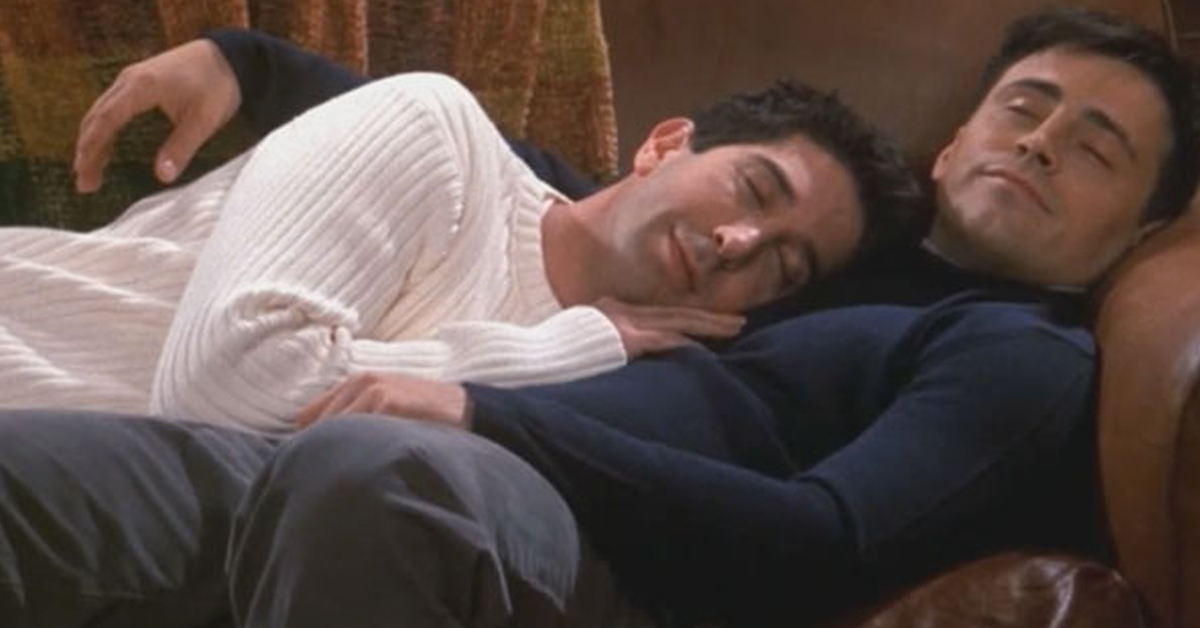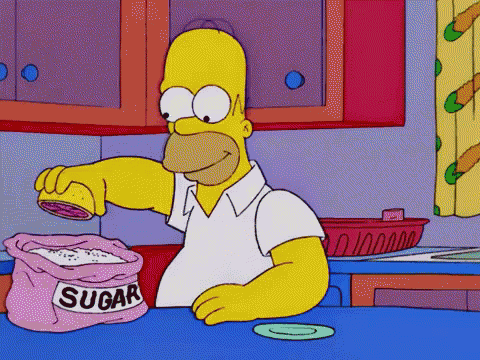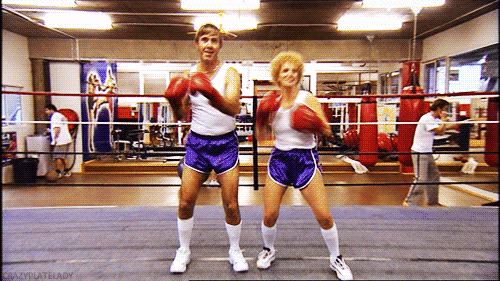
There is nothing on this planet with a more unbalanced satisfaction-to-regret ratio than a post-work nap. The feeling of hitting the couch after a day of being zapped of all your energy is undeniably incredible for exactly five minutes. Then, all of a sudden, you wake up at 8:38 PM completely disoriented.
Falling asleep for hours after work in the early evening can be a pretty hard habit to kick once you’ve locked yourself into it. It can disrupt your sleep pattern at night, as it impacts your circadian rhythm (your internal body clock), leading to a cycle of poor rest.
We’re all for regular downtime and relaxation, but ensuring you’re scheduling that into your routine when it’s not potentially causing further problems is essential.
If you’re looking to stop yourself from hitting the pillow as soon as you get home from work, getting to the bottom of why you’re feeling so tired is a good place to start. Here’s a look into why your body might be begging you to snuggle up the second you clock off and how to slowly but surely kick the habit.
Your 3 pm Snacks Are Too Sugary
Reaching for the work bickie jar, an energy drink, or sneaky chocolate bar is sometimes the only thing that’ll satisfy the 3pm slump. While it’s important to honour our cravings (in moderation), a daily sugar hit in the afternoon can lead to an inevitable crash, leaving you sleepy and sluggish. The World Health Organisation (WHO) recommends eating no more than six teaspoons of added sugar every day, and according to Sugar By Half some popular snacks like muffins, muesli bars and soft drinks can contain more than this in just one serving.
There could also be hidden caffeine lurking in the sugary snacks you’re reaching for too. It’s often found in things like chocolate, some protein and energy bars, and of course drinks like coffee and tea. Caffeine is a stimulant, which means it acts on your brain and nervous system to give you a short burst of energy. Try and limit your intake of it after 3pm for better sleep at night, so you’re less tired the next day.
Opting for a banana, a bowl of yoghurt and berries, or some veggie sticks and hummus is a way better afternoon option to fill yourself up, plus different foods contain different essential nutrients so eating a wide variety of these will fuel your body with the foundational nutrients it needs to get you through the day. If you’re uninspired, there are plenty of healthy snack recipes you can find at Healthier.Happier, so get creative with it.

Your Screen Time Is Going Through The Roof
We’re all well aware that blue light and overexposure to screens, in general, aren’t exactly the best for our health. Unfortunately, tech is a huge (and integral) aspect of our lives, so being extra mindful of how much we’re looking at screens and when we’re interacting with them is important. Overexposure to blue light from screens at night leads to being over-stimulated before bed and makes getting into a deep sleep harder, which in turn can mean you are more tired the next day and more prone to nap.
This is because the light emitted from our devices can confuse the body clock by disrupting our levels of melatonin (the hormone that helps us sleep) and over-stimulating our brains when they should be calming down. It perpetuates a cycle of inadequate night-time sleep, leading to a lack of energy during the day and making us more susceptible to naps.
Blue light exposure is also known to have a negative impact on mental health, which can also deplete energy further. This is because maintaining a state of alertness at night increases the production of hormones like adrenaline, dopamine, serotonin and cortisol, which are linked to conditions like anxiety and depression.
If your job requires you to stare at a screen for an extended period of time, try and take regular breaks away from your desk to give your eyes a break, leave your phone in another room, so you’re not constantly flicking between it and your laptop, to lessen the chances of eye-fatigue, over-exposure and entering nap land earlier than you should.
You’re Not Drinking Enough Water
Sometimes the simplest things in life are the hardest to nail.
A lack of water intake is directly linked to drowsiness, headaches and a general feeling of ill-health. It might sound painful, but swapping out your soft drinks and caffeinated drinks like coffee and tea for water will have a positive impact on your health in the long run. Get a cute bottle, fill it up and pack it in your bag the night before, or leave it on your desk, so it stares at you all day begging to be drunk.
You Might Not Be Working Out Enough
I’m sure you’re well aware after 2020’s lockdowns that sitting for extended periods of time is never a positive thing. That feeling of being physically exhausted after not moving much isn’t just in your head. So many jobs require sitting for 8 hours straight – so getting up early and fitting in a workout before work or scheduling in time after work to exercise is a good way to help curb the temptation to snooze after a long day.
This is because physical activity is known to improve mental wellbeing as exercise reduces overall tension levels and increases serotonin (the happy hormone), helping your brain regulate mood, sleep and appetite, and therefore your energy levels.
If you find it hard to commit to exercise, convince a buddy to do it with you, join a team sport, or book yourself into classes with hectic cancellation fees, so you’re not tempted to opt-out. Your body and mind will thank you.
Getting in a proper 30min-1 hour long workout every day of the week might not be attainable for most. We do need to give our bodies rest after all. However, ensuring you’re moving your body enough every day is essential. Keep your daily steps up, find ways to incorporate walks into your day, whether it’s by taking public transport instead of driving, taking a walk at lunchtime or even setting calendar reminders to get up and move your legs.
Get active outside, get fresh air and get some sunlight, and you’ll be giving your body the love it needs to feel rejuvenated at the end of a day.

You’re Stressing Out Hard
Work can take an emotional toll. It’s hard for a lot of us to immediately part ways with what we’ve been stressing over for 8+ hours the second we finish work, and heading to bed seems like the only way to decompress and forget about it all.
Stress is linked to fatigue – and an ongoing feeling of overwhelming stress is likely to have you feeling zonked. Taking further steps to better your mental health is always essential, but if you’re feeling the toll starting to develop, it’s probably time to take action. Making time for meditation, and other mindfulness practices (like drawing, playing an instrument of even colouring-in, if you’re feeling funky) is a great way to decompress after a hard day. Exercise is also a great way to combat stress – exercise releases endorphins and endorphins make you happy! It’s a way more productive way of dealing with stress than having a nap.
While adopting healthier lifestyle choices is always a positive thing, it is worth noting that sometimes sleep troubles can be linked to greater medical conditions, so it’s important to get in contact with your GP to discuss any concerns around your sleep.
If you’re looking for more info around how to develop healthier habits and end your unhealthy relationships, suss out Queensland Health’s Dump the Junk website for tips to help you get started.



